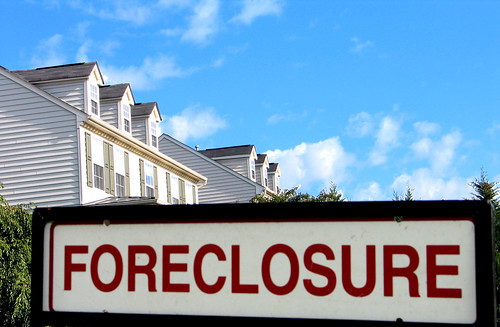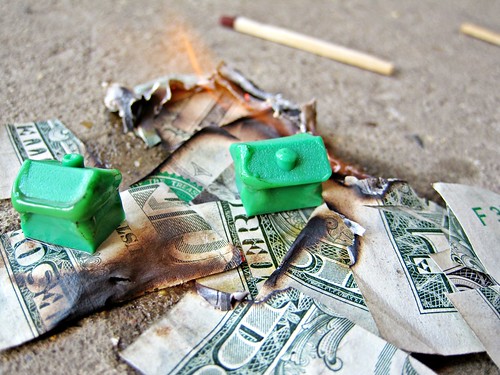When it comes to real estate, the real “f” word is “foreclosure.”
No one likes to talk about it and certainly no one wants to undergo foreclosure proceedings, but foreclosures do happen from time to time. Of course, there are other options that can help you avoid the odious trial and error of a foreclosure. Sometimes, your best option is really to go with a short sale so that you can avoid the tedious procedure of the bank seizing your home. Other times, you might have to opt for bankruptcy to halt foreclosure proceedings for at least a few months. But, is there ever a time where going through with a foreclosure is really your best option?

Many real estate agents might tell you that you should always try for a short sale to get out of a foreclosure situation. Short sales effectively give you power over the direction of your home and they can also get rid of your debt to the bank for a smaller amount of money. Short sales effectively let you sell your home for less than you owe on it. The bank will then generally forgive all your debts and you can move on peacefully with the rest of your life.
While a short sale might sound great by comparison to a foreclosure, there are still a few options for you if you can’t drum up any prospective buyers. One of the major problems with foreclosure is really just the social stigma. No one wants to say that they had to undergo foreclosure proceedings, but what does a foreclosure really mean? At its most basic, a foreclosure occurs when you can’t make your mortgage loan payments. We’ve all had times when money was tight, so most people won’t judge you harshly if you enter into foreclosure.

One of the things that foreclosure provides you is the ability to live in your own home rent-free. While some people might see this as a stressful occurrence, it doesn’t necessarily have to be. If you simply let your house go, you can live without the burden of paying any mortgage payments for up to a year or even more at a time. The banks can’t really make you pay a cent while you are living there and you can also accumulate a lot of money in order to save up for a rental.
The problem with a foreclosure, however, is that it stays on your credit rating for up to 7 years. You will not be able to purchase a new home in that time and may be declined for many other types of loans. But, if you’re content with renting for a few years and you manage your money more tightly, then you won’t really have an issue having that “foreclosure” on your credit rating. This is especially true if you are already employed. Some new employers might ask for a credit check, and they may deny you employment based on a foreclosure, but your current employer will not make similar kinds of checks. While a foreclosure isn’t always the best option, it can provide you with a lot of time to accumulate money while living with free rent.
Learn about credit card hardship programs next.
Featured images:
 License: Creative Commons image source
License: Creative Commons image source License: Creative Commons image source
License: Creative Commons image source
Matt Reynolds provides financial advice to homeowners facing foreclosure. He is best known for his public speaking in the southern California area where he holds seminars on real estate investing, foreclosure purchases, and home refinance.
